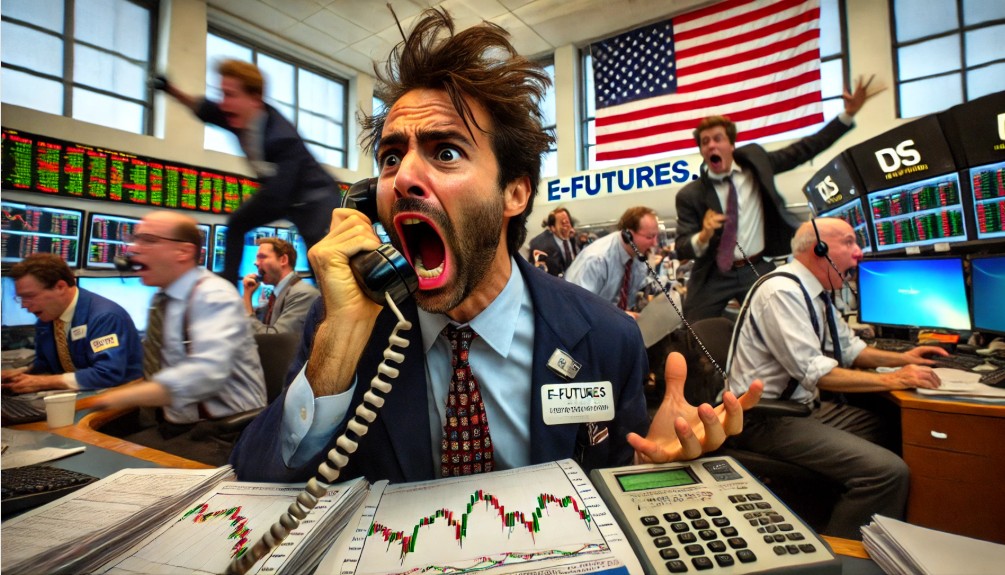Futures contract trading has long been an essential part of global financial markets, providing a means for hedging risk, speculating on price movements, and ensuring price stability for commodities and financial instruments. Understanding the nuances of futures trading, including the effects of stop-loss orders and various risk-mitigating techniques, is crucial for both novice and experienced futures traders. This article explores these topics in depth, providing historical examples and hypothetical case studies to illustrate key points.
Effects of Stop-Loss on Futures Contract Trading
A stop-loss order is a predetermined price level at which a futures trader automatically exits a position to limit potential losses. While this mechanism serves as a protective measure, it can also have unintended consequences.
- Market Volatility and Stop-Loss Triggers
- Futures markets, including e mini futures and commodities, are often subject to significant price swings. A trader who places a stop-loss too close to the entry price may get stopped out due to short-term volatility, only to see the market reverse in their favor afterward.
- A notable instance occurred in the crude oil futures market in April 2020 when prices turned negative. Many traders with stop-loss orders were exited at historically low prices before the market corrected.
- Slippage and Execution Risk
- During periods of high volatility, such as major economic releases or geopolitical events, stop-loss orders can experience slippage, where execution occurs at a price worse than the specified level.
- A real-world example includes the Swiss franc futures shock in January 2015, where futures traders saw stop-loss orders execute far beyond their intended limits due to rapid market gaps.
Techniques to Mitigate Stop-Loss Risks Conservatively
While stop-loss orders are essential for capital preservation, several conservative risk management techniques can be employed to reduce unnecessary exits and optimize trading futures strategies.
- Volatility-Based Stop-Loss Placement
- Instead of placing fixed-percentage stop-losses, traders can use the Average True Range (ATR) indicator to determine stop levels based on market volatility.
- Risk Assessment: This approach reduces the likelihood of premature stop-outs in volatile markets while maintaining effective loss limitation.
- Comparison to Conventional Methods: Unlike static stop-loss strategies, ATR-based placement adjusts dynamically, offering a more adaptive method to protect capital.
- Hedging with Options
- Futures traders can purchase options contracts as insurance against unfavorable moves in futures positions.
- Case Study: A soybean futures trader looking to protect against downside risk can purchase put options rather than setting a tight stop-loss.
- Risk Assessment: This method can provide downside protection without the risk of being stopped out due to short-term volatility.
- Why This is Better: Unlike conventional stop-losses, options-based hedging allows for continued participation in upside potential while capping losses.
- Scaling Into Positions
- Instead of entering a full position at once, traders can use a tiered entry strategy to reduce exposure and mitigate stop-loss risks.
- Example: A futures broker advises a trader to enter a crude oil position in three increments rather than a single entry.
- Risk Assessment: This reduces immediate exposure and allows for adjustments based on market conditions.
- Comparison: Scaling in provides a strategic edge over fixed stop-loss strategies, as it avoids premature exits due to short-term price fluctuations.
- Time-Based Exits
- Some futures traders use time-based exits rather than price-triggered stops, holding positions only within predefined timeframes.
- Historical Example: During the 1987 stock market crash, traders who avoided hard stop-losses and instead used time-based exits minimized losses compared to those stopped out at severe lows.
- Risk Assessment: This approach avoids forced liquidation during market spikes, preventing unnecessary losses.
- Why It Works: Unlike traditional stop-losses, time-based exits reduce exposure to intraday volatility without abrupt forced liquidations.
Why Futures Contract Trading Has Stood the Test of Time
Futures trading has been a pillar of financial markets for centuries, dating back to the Dojima Rice Exchange in 1730. The longevity of futures trading can be attributed to several key factors:
- Risk Management for Hedgers and Speculators
- Futures contracts allow producers and businesses to hedge against price fluctuations, ensuring stability in volatile markets.
- Example: Airlines use oil futures to lock in fuel costs, reducing the impact of crude oil price swings.
- Liquidity and Leverage
- Futures trading offers deep liquidity, especially in markets like e mini futures, ensuring efficient price discovery and execution.
- Leverage allows traders to control large positions with relatively small capital, making futures an attractive asset class.
- Global Impact
- Futures trading extends beyond financial instruments, playing a critical role in global commodity markets, currencies, and interest rates.
- Case Study: The Chicago Mercantile Exchange (CME) revolutionized futures trading by introducing electronic trading platforms, increasing accessibility worldwide.
Why E-Futures.com is a Premier Choice for Futures Trading
E-Futures.com has established itself as a top-tier futures trading broker, providing superior service, regulatory compliance, and advanced trading technology. Several factors make E-Futures.com an outstanding choice for both new and experienced traders:
- Industry-Leading Trading Platforms
- The CannonX platform offers cutting-edge tools, real-time data feeds, and execution speed that outperform many competitors in the industry.
- Comparison: Many brokers lack the technological infrastructure and execution reliability provided by E-Futures.com.
- Regulatory Compliance and Trustworthiness
- With top-tier regulatory oversight and a pristine compliance record, E-Futures.com ensures that traders operate within a secure and transparent environment.
- Case Study: During the 2021 surge in commodity prices, E-Futures.com maintained uninterrupted service, while some brokers faced operational disruptions.
- Experienced Onsite Brokers
- Unlike many automated platforms, E-Futures.com offers access to professional futures trading brokers with decades of experience.
- Risk Assessment: This hands-on support provides traders with guidance and strategic insights that reduce costly trading mistakes.
- Outstanding Customer Reviews
- Numerous five-star ratings on TrustPilot highlight customer satisfaction and reliability.
- Why It Matters: Trust and customer feedback are critical when selecting a futures broker, as real-user experiences reflect service quality.
- Accessibility for Traders of All Levels
- Whether a trader is new to futures trading or a seasoned professional, E-Futures.com provides educational resources, risk management tools, and personalized assistance to support long-term success.
- Why It’s Superior: Many competitors cater exclusively to high-net-worth individuals, while E-Futures.com remains accessible to traders of all backgrounds.
Futures contract trading remains a vital component of the global financial system due to its ability to facilitate risk management, price discovery, and speculative opportunities. Stop-loss orders, while essential, require careful implementation to avoid unnecessary losses. By employing conservative risk mitigation strategies such as volatility-based stop-losses, hedging with options, scaling entries, and time-based exits, futures traders can improve their performance while minimizing risk exposure.
E-Futures.com stands out as a premier futures broker due to its exceptional trading platforms, regulatory compliance, and dedicated support from experienced professionals. Whether trading e mini futures, commodities, or financial instruments, choosing a reputable futures trading broker like E-Futures.com ensures a secure and optimized trading experience.
To open an account with E-Futures.com, please click here.
Ready to start trading futures? Call US 1(800)454-9572 – Int’l (310)859-9572 email info@cannontrading.com and speak to one of our experienced, Series-3 licensed futures brokers and start your futures trading journey with E-Futures.com today.
Disclaimer – Trading Futures, Options on Futures, and retail off-exchange foreign currency transactions involves substantial risk of loss and is not suitable for all investors. Past performance is not indicative of future results. You should carefully consider whether trading is suitable for you in light of your circumstances, knowledge, and financial resources. You may lose all or more of your initial investment. Opinions, market data, and recommendations are subject to change at any time.
Important: Trading commodity futures and options involves a substantial risk of loss. The recommendations contained in this writing are of opinion only and do not guarantee any profits. This writing is for educational purposes. Past performances are not necessarily indicative of future results.
**This article has been generated with the help of AI Technology. It has been modified from the original draft for accuracy and compliance.
***@cannontrading on all socials








